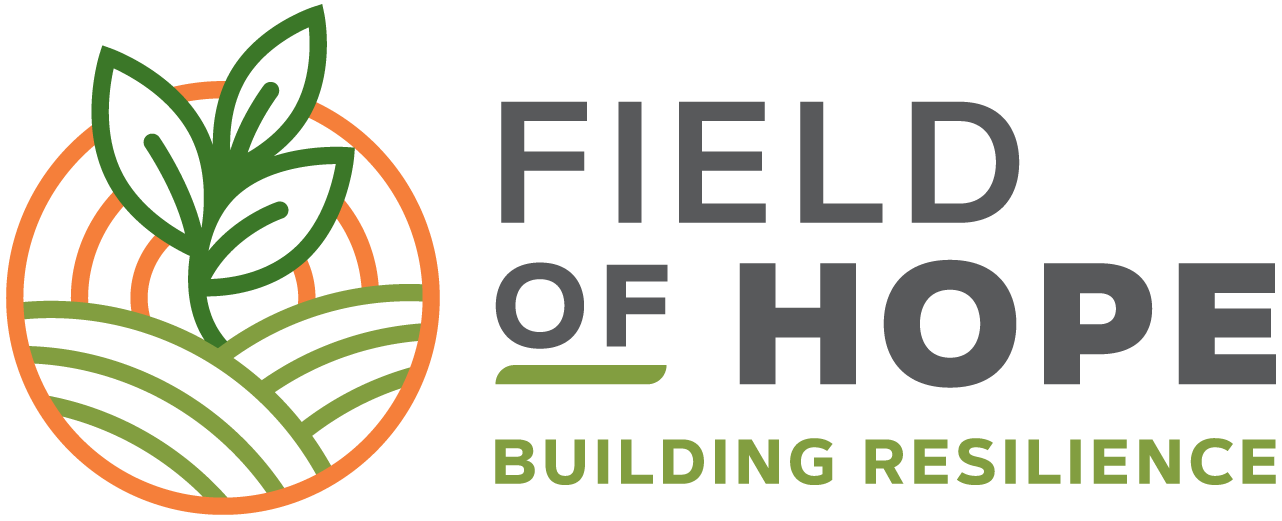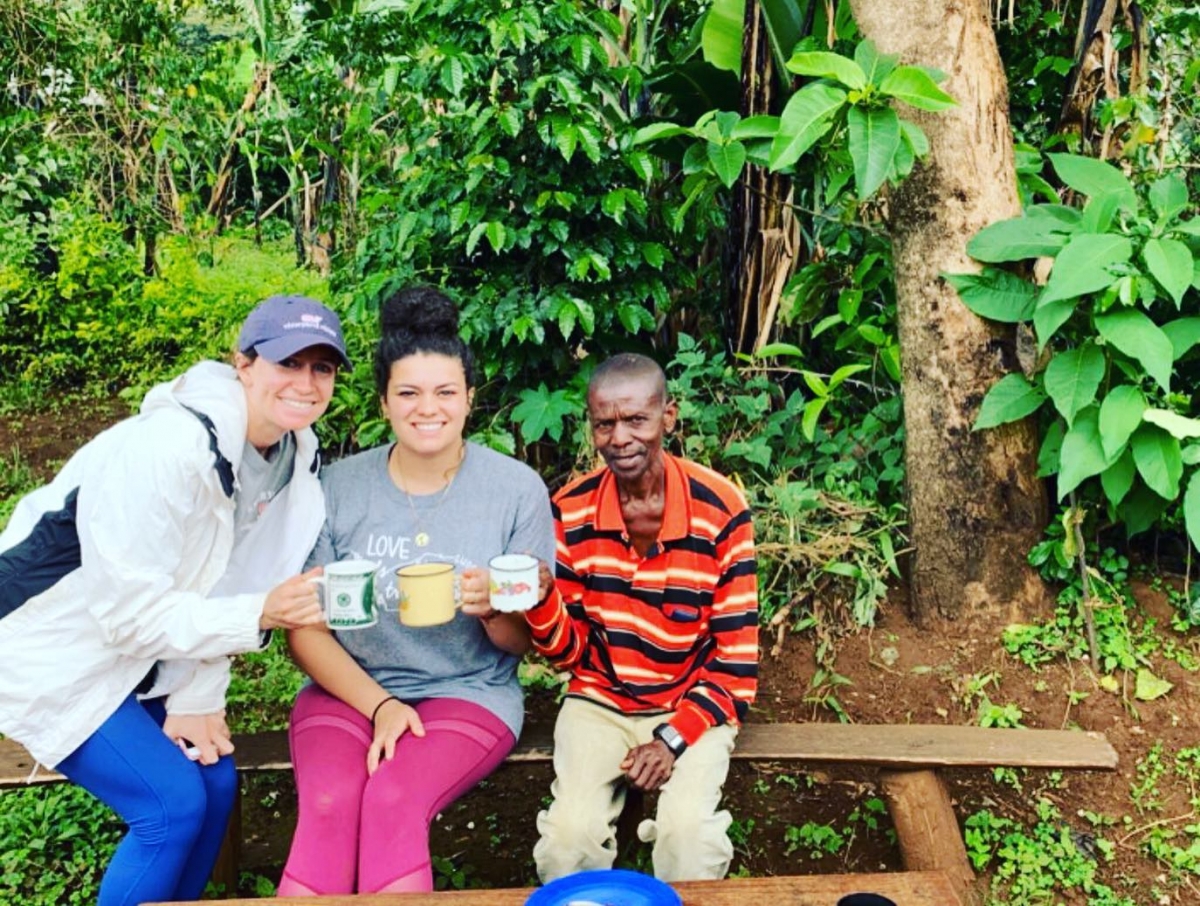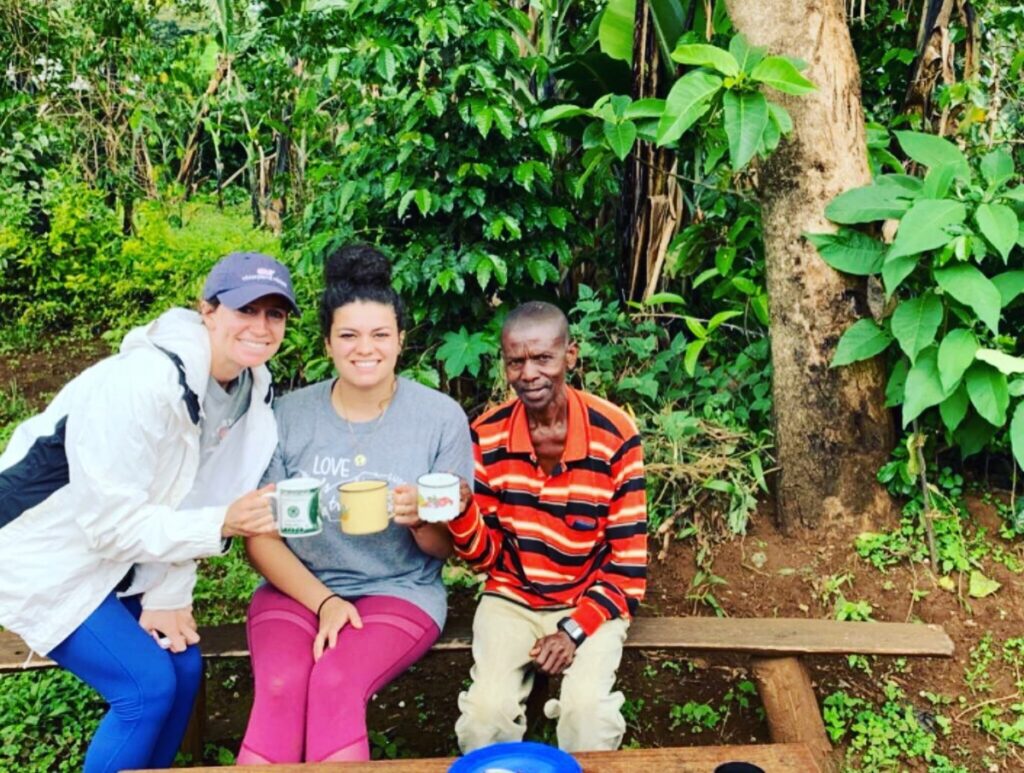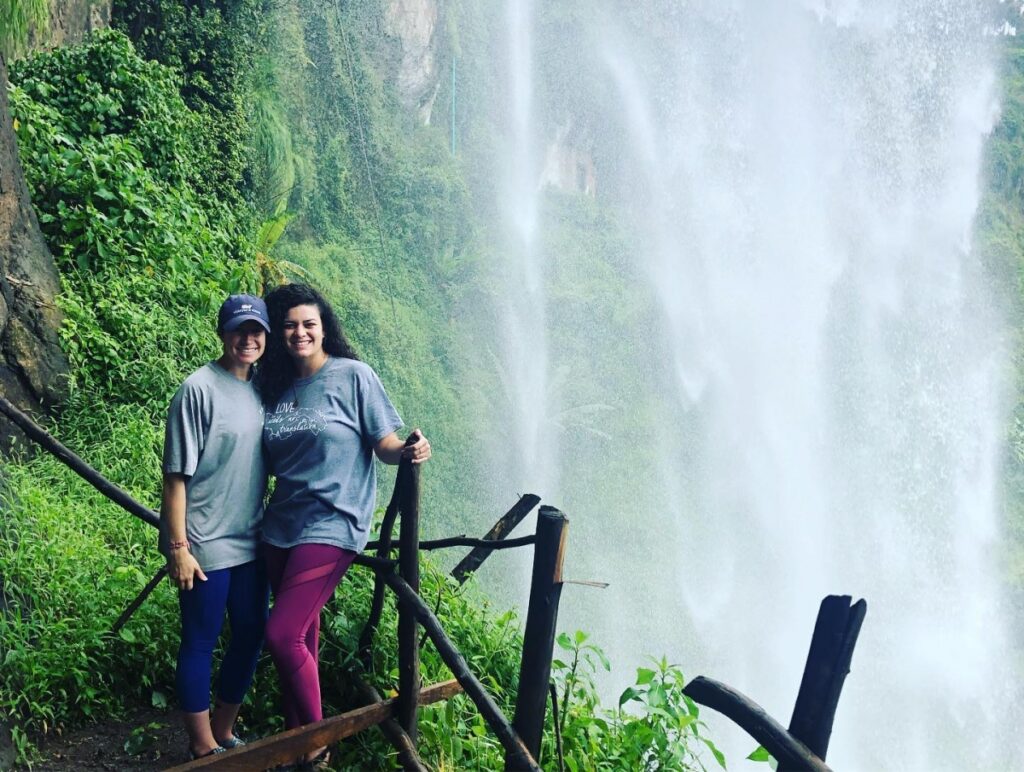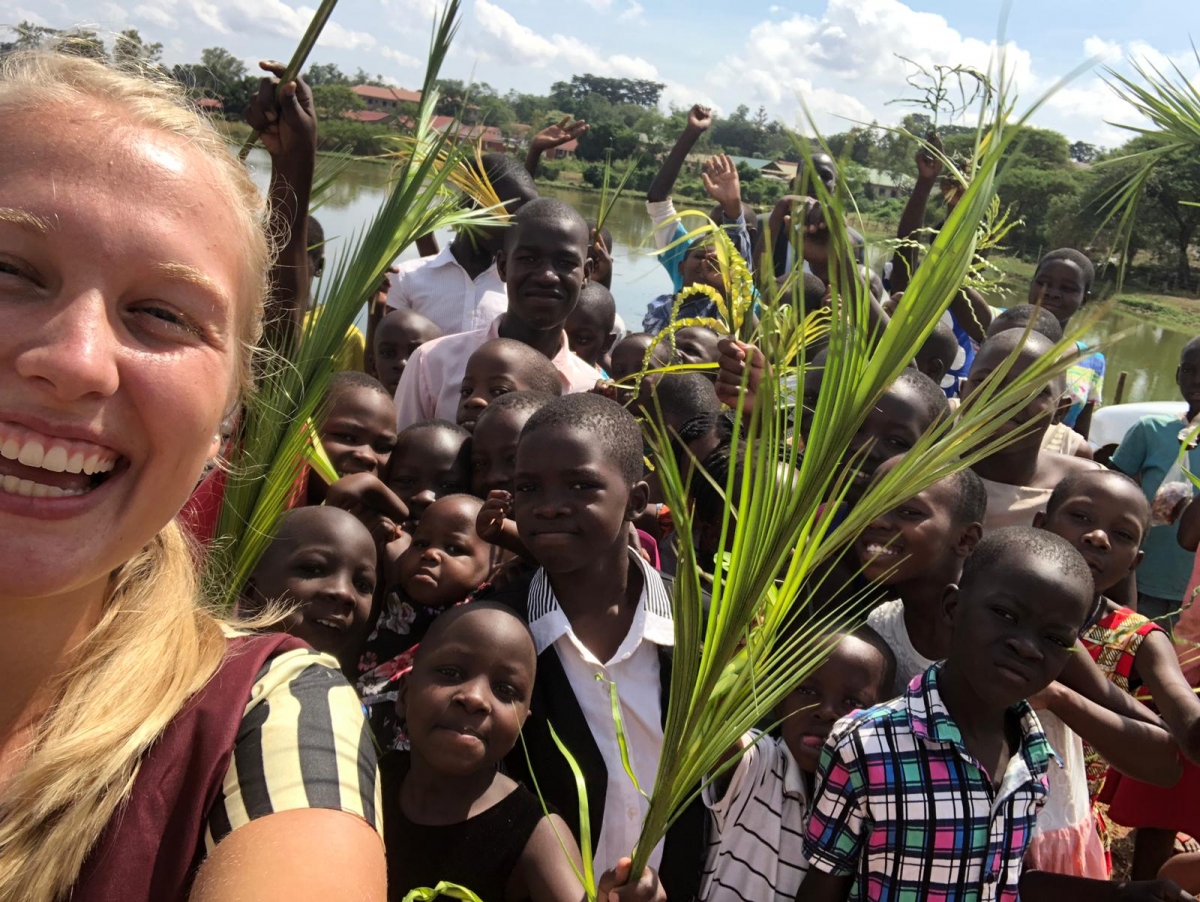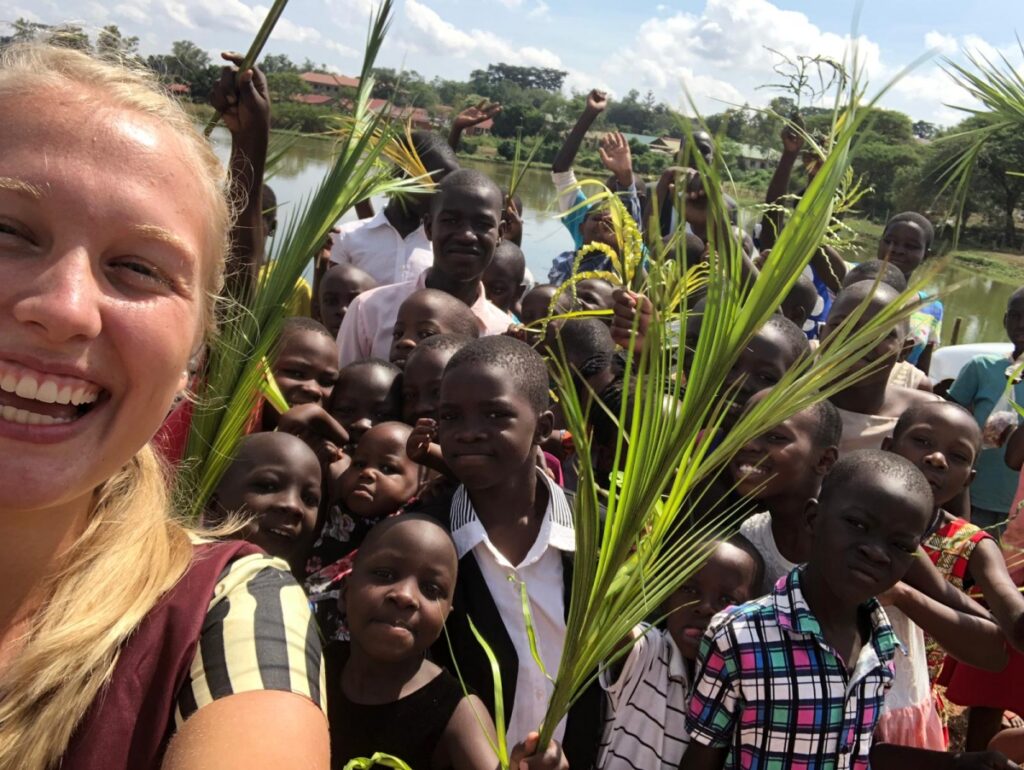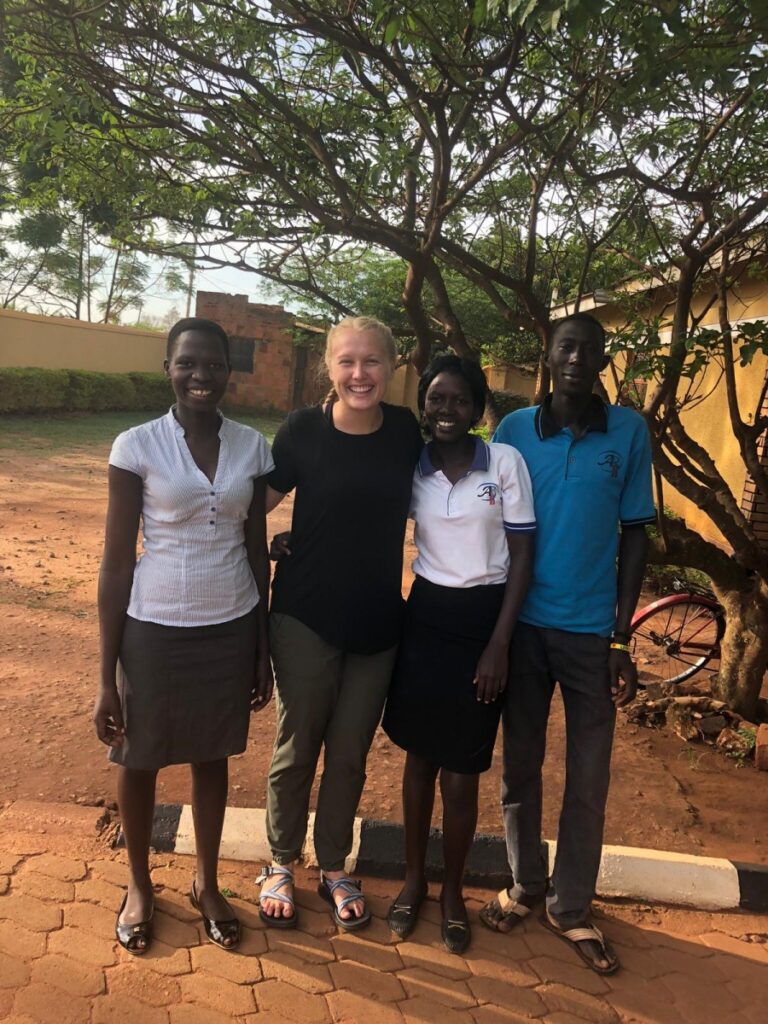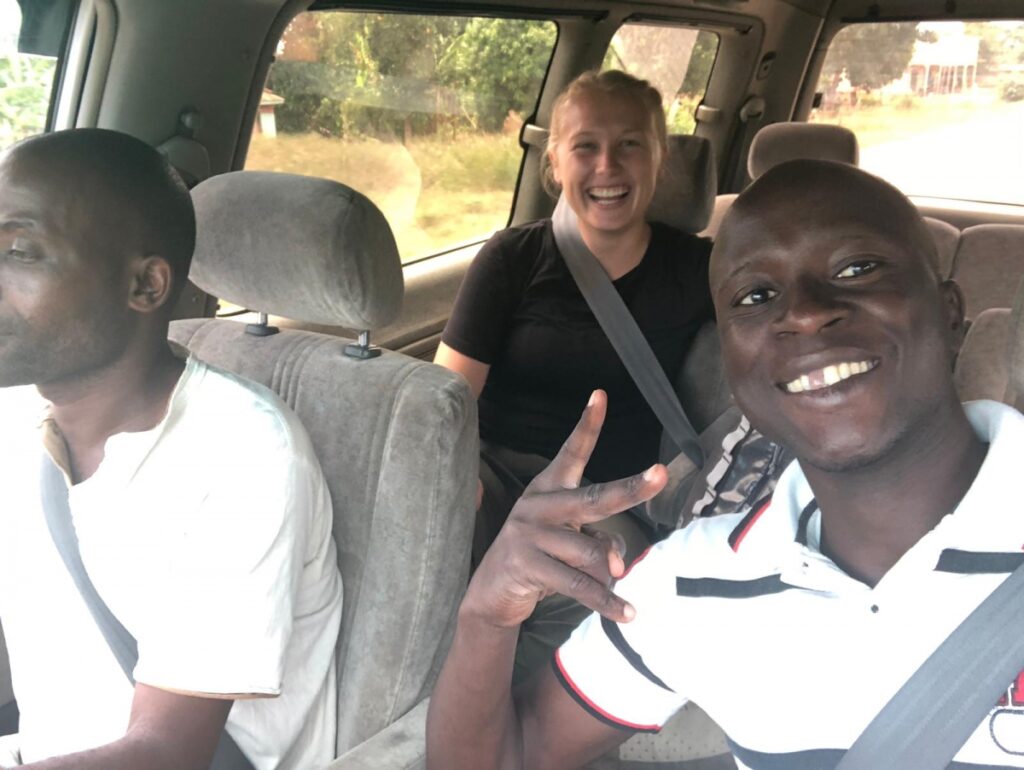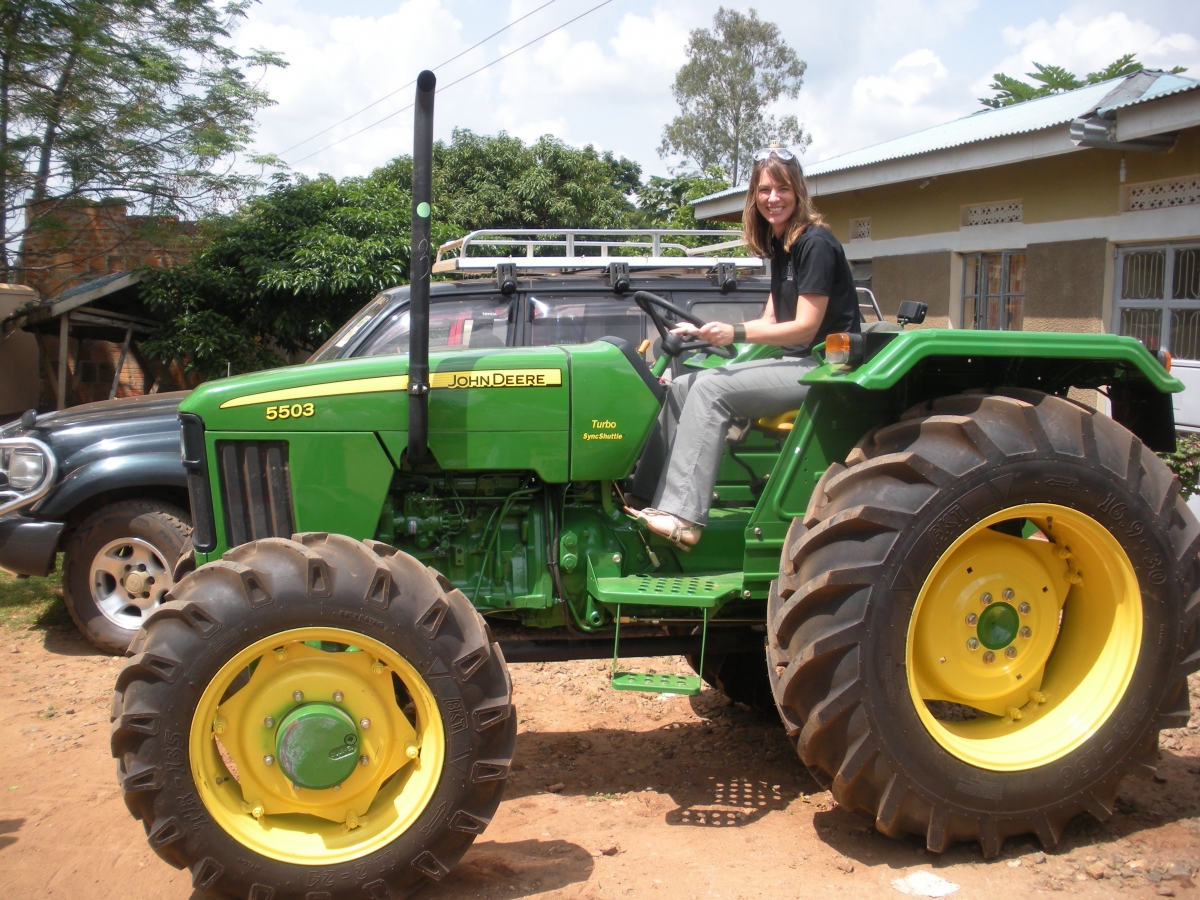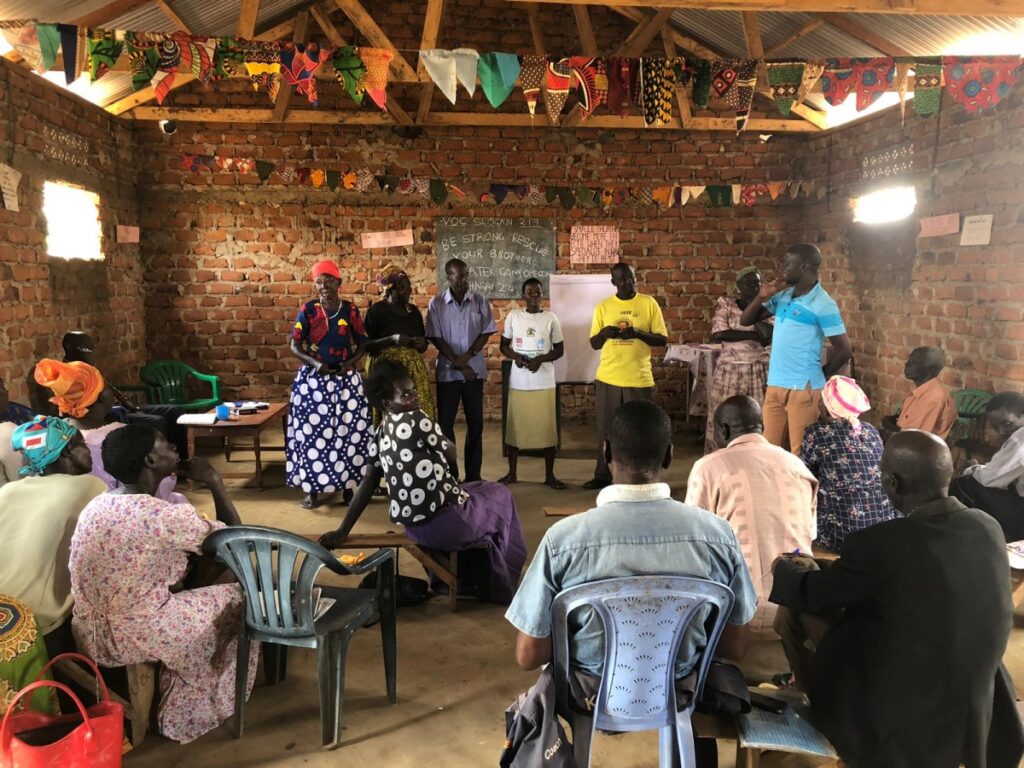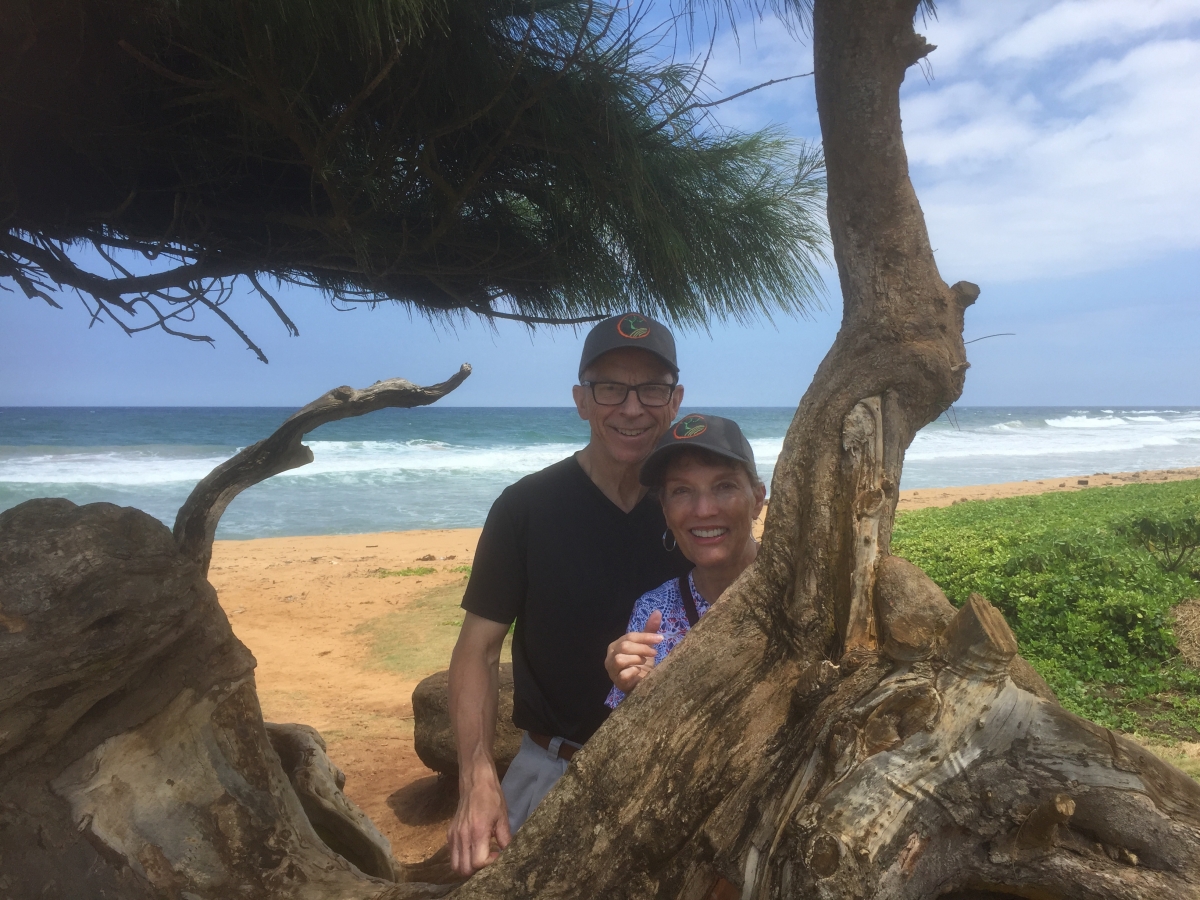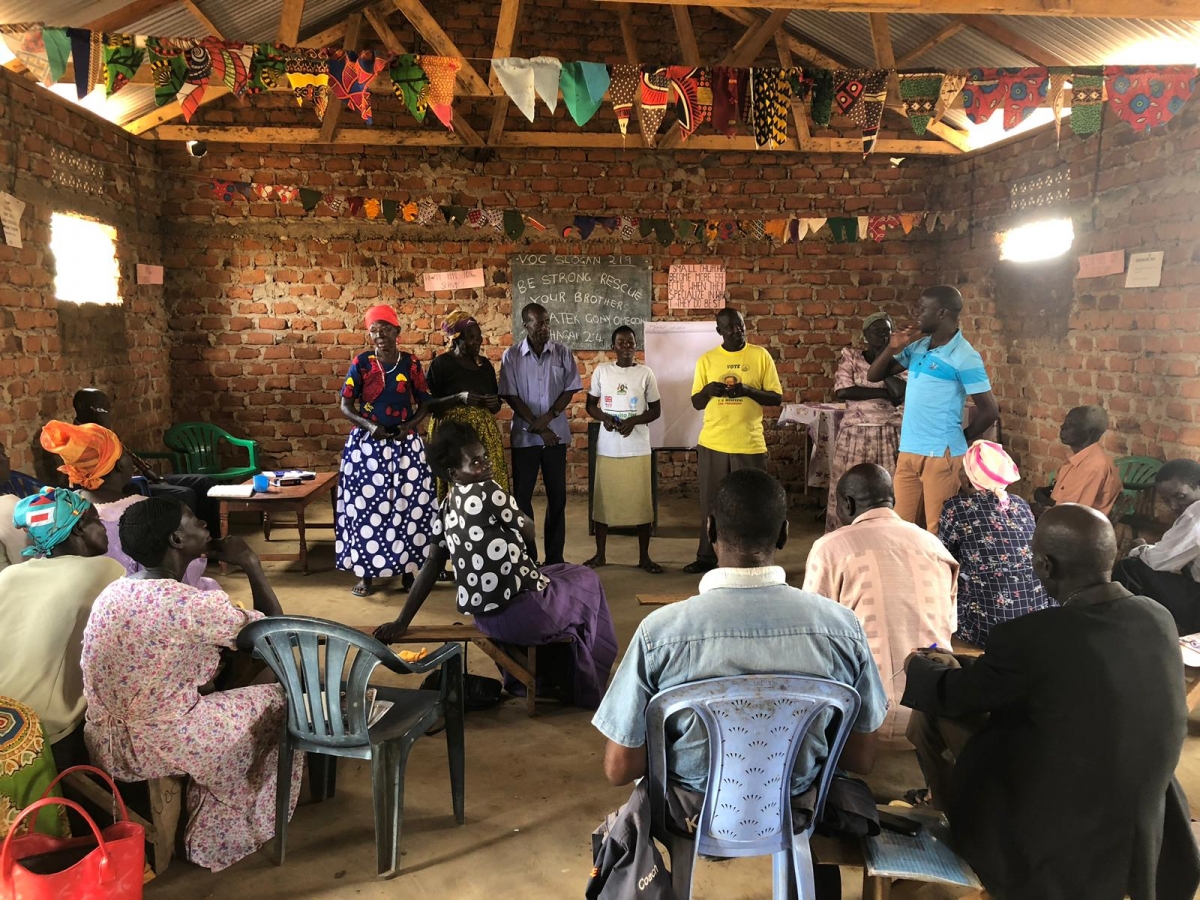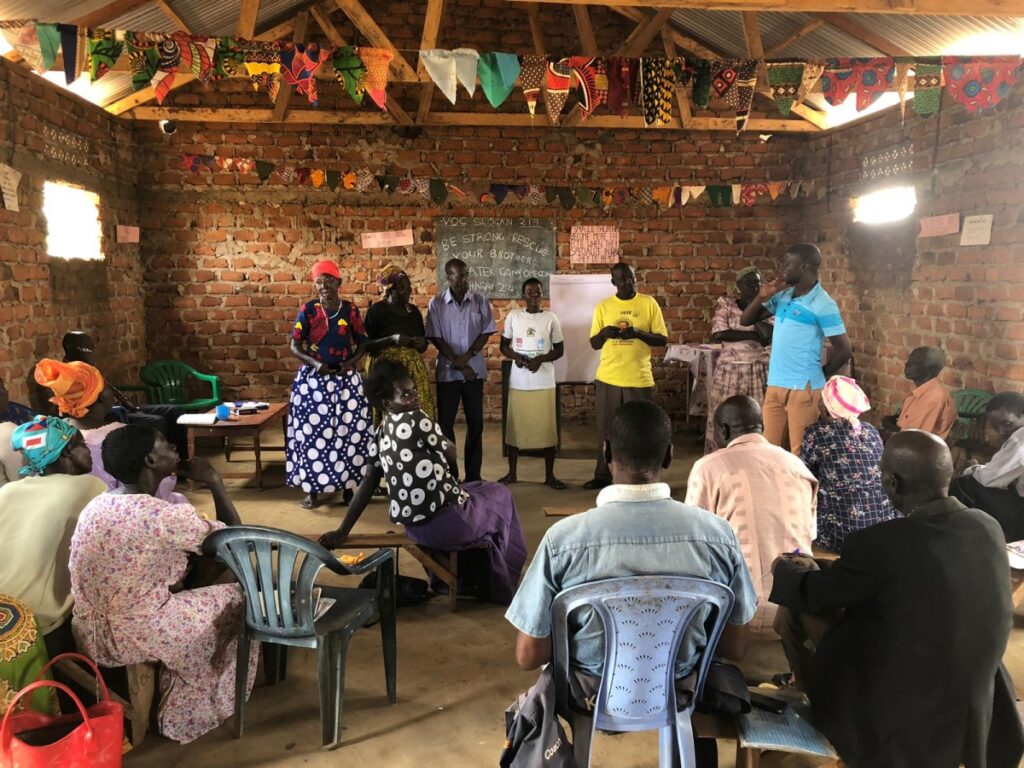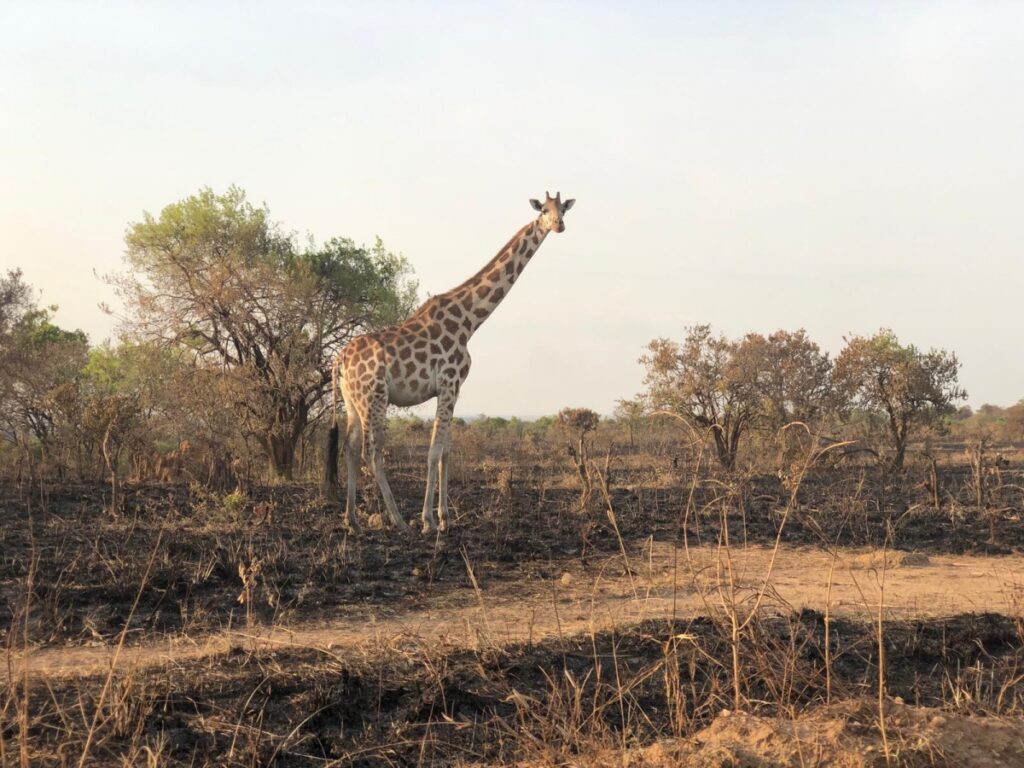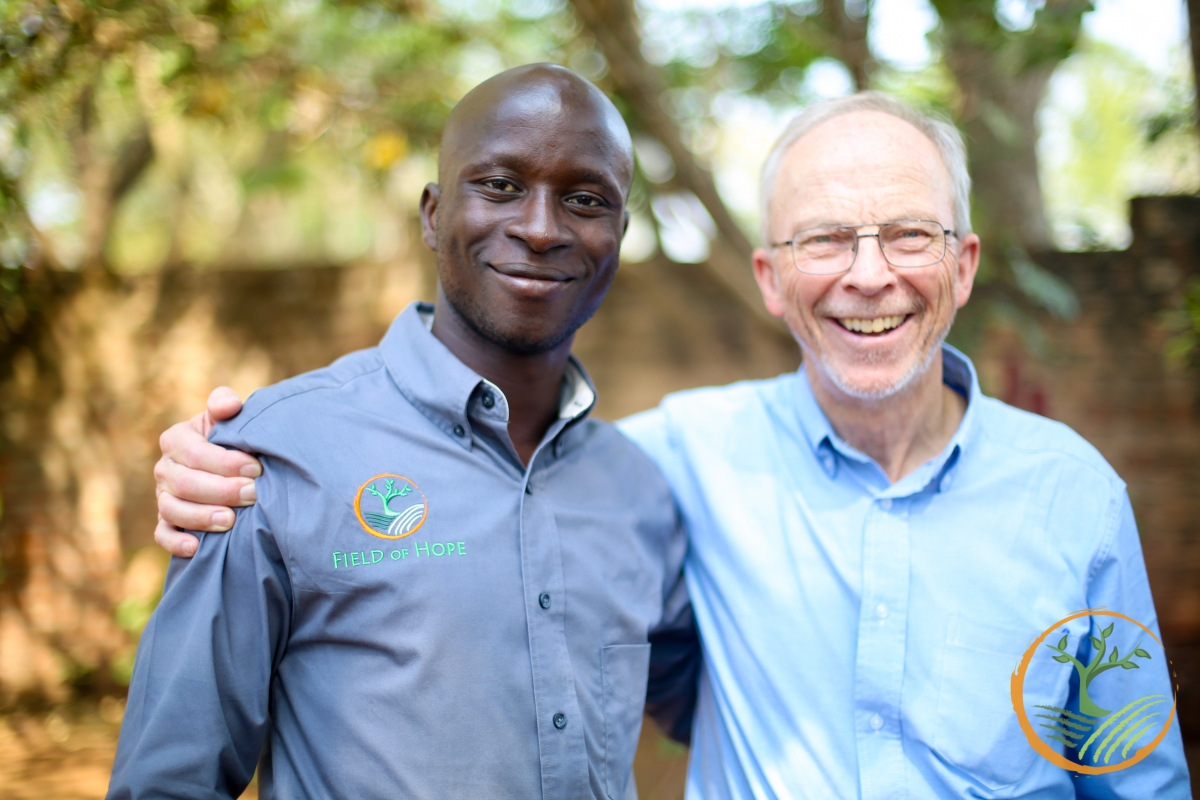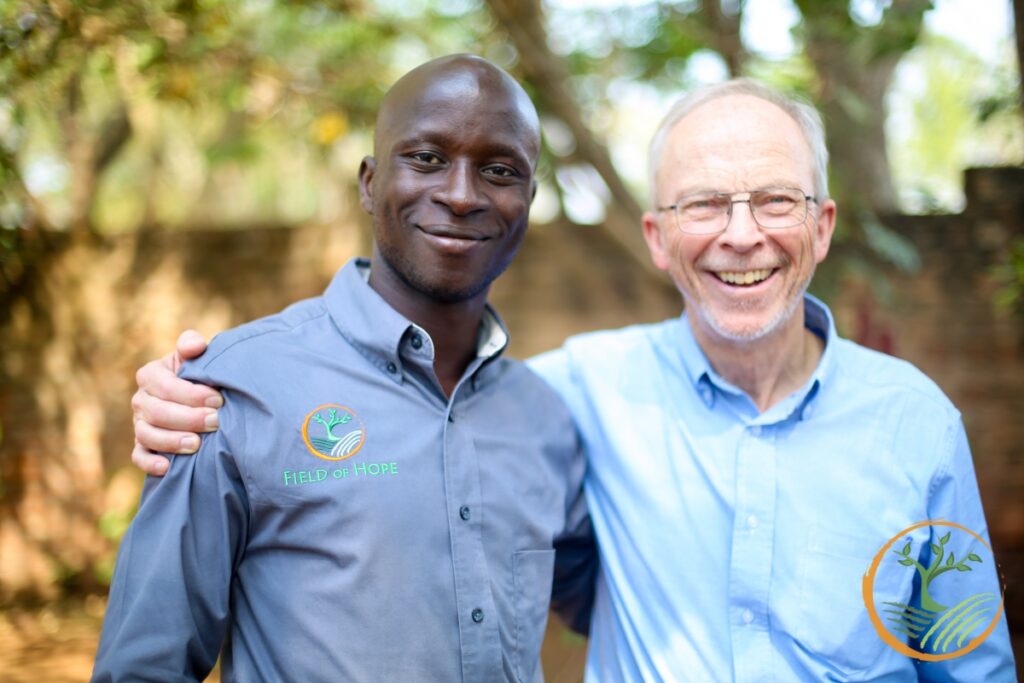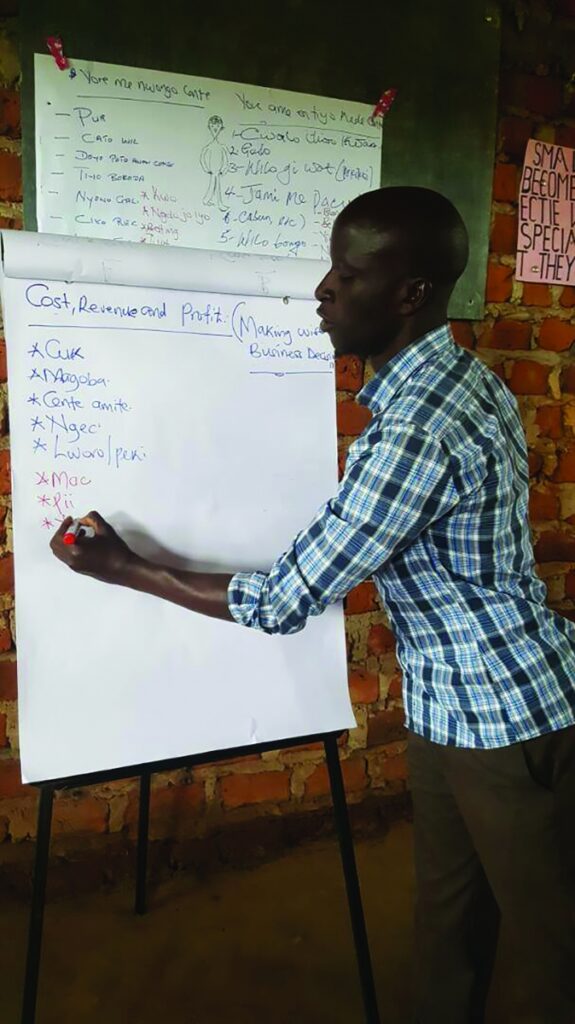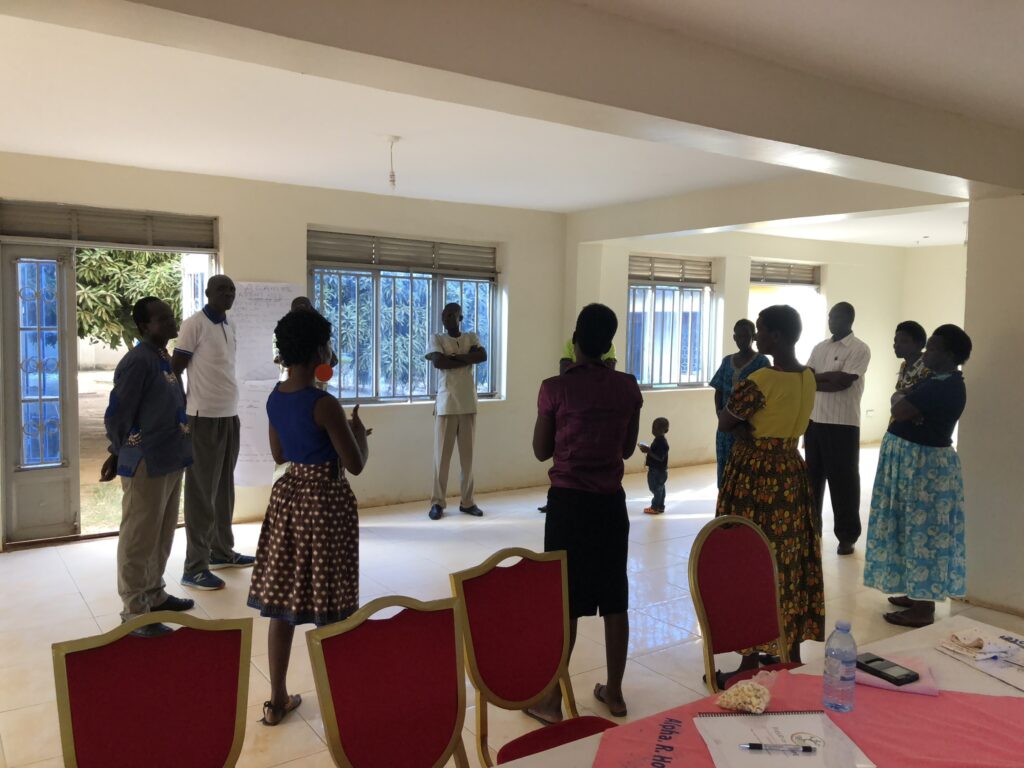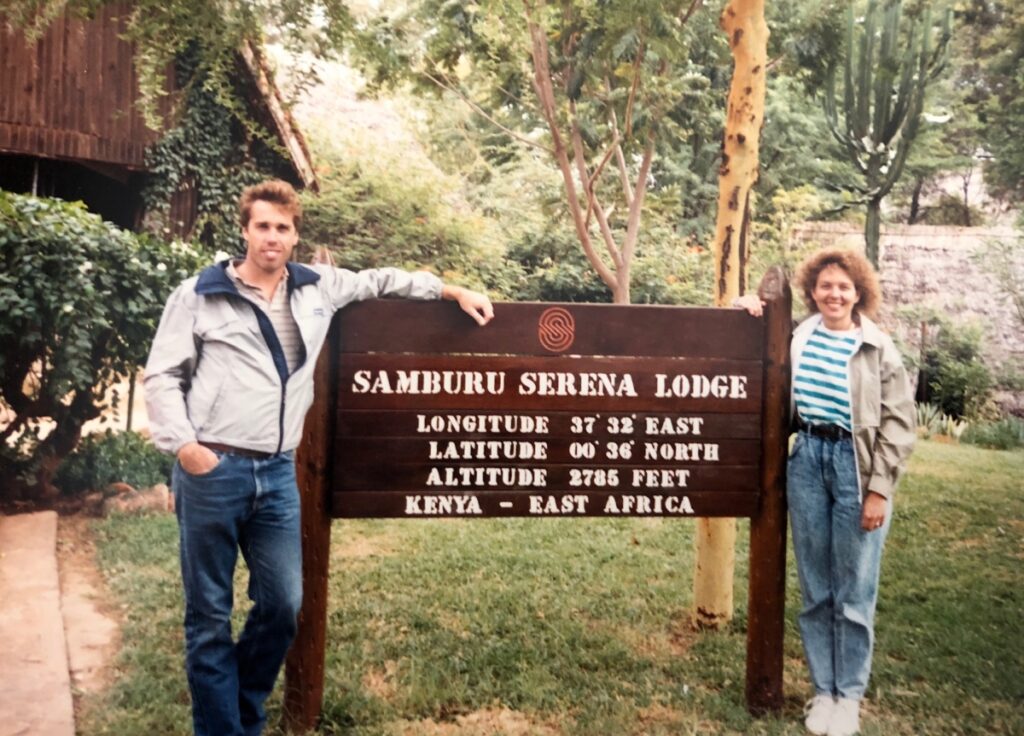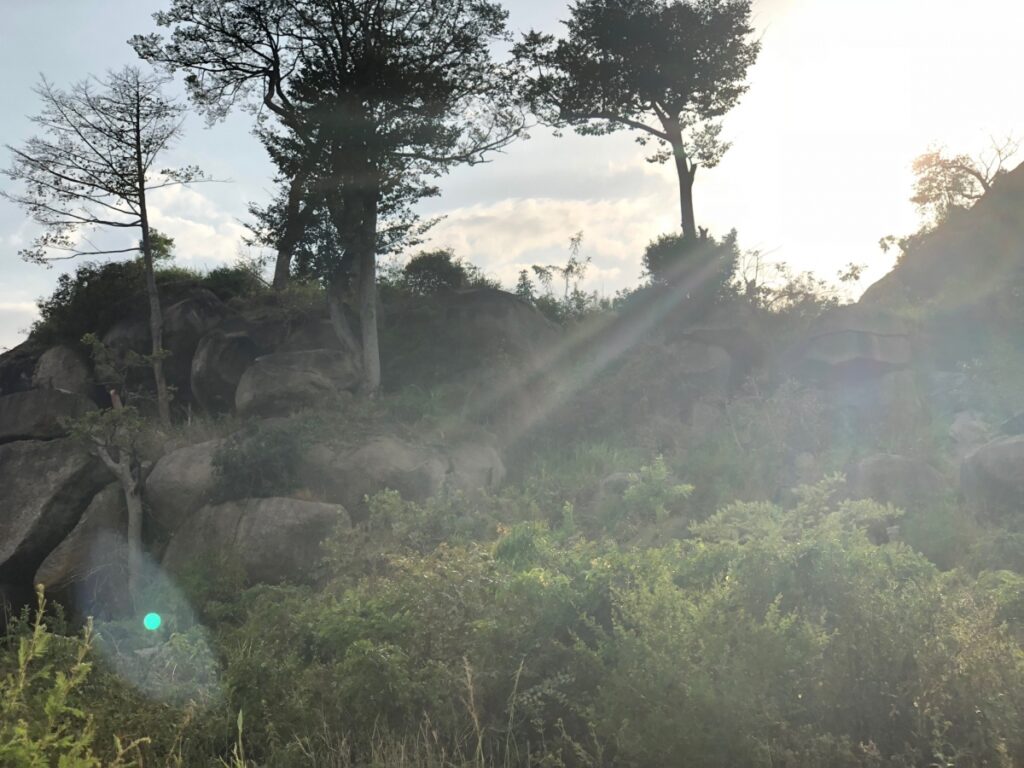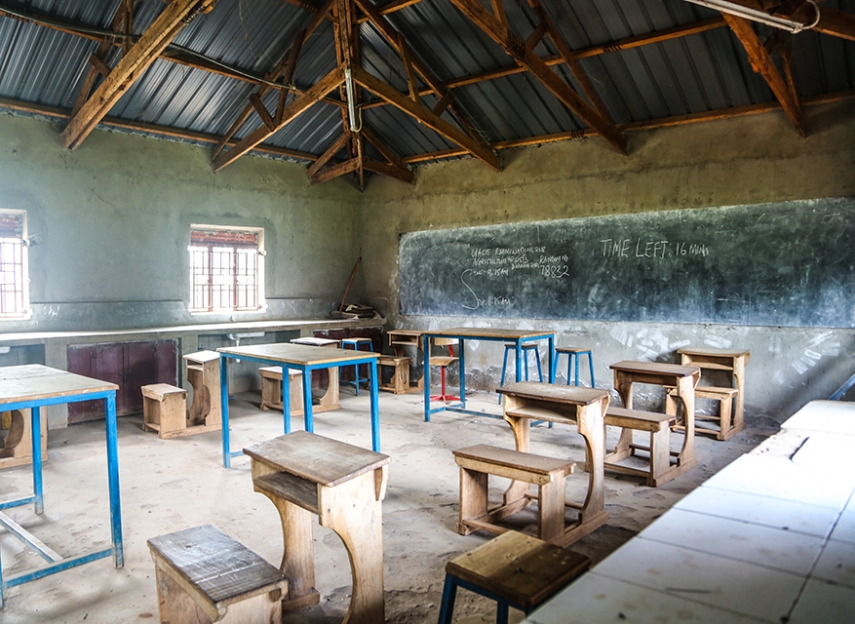We sat down with co-founders Mike and Cathy Hafner and asked them some questions about the great eight years of Field of Hope!
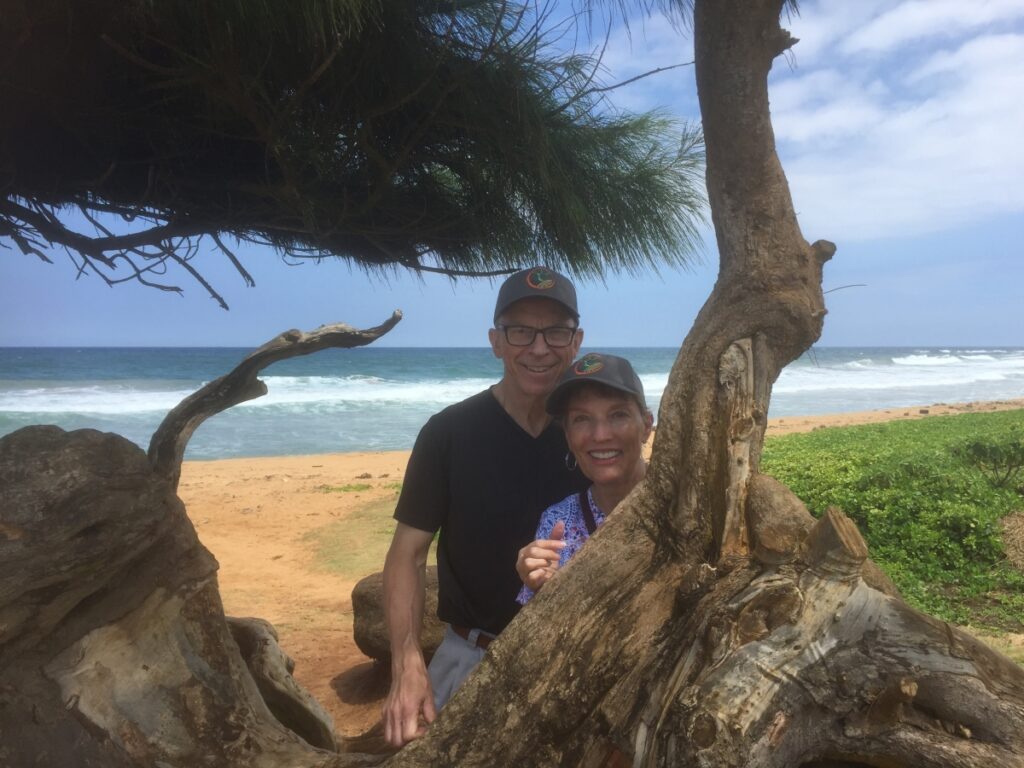
What did you expect to see eight years ago when you started Field of Hope? How does the reality measure up to the vision?
Mike:
Well, early on, I had a very different vision for Field of Hope. I expected that Field of Hope would be investing in capital projects like large drip irrigation gardens and helping farmers purchase tractors, attachments and implements. I have learned that you cannot transform agriculture by just dropping western agricultural products and practices into a developing country. It is much more complex than that. It has been amazing how God has changed that original dream to something much different – and much better. Our work with women smallholder farmers and students in high schools and orphan care centers is the right thing to do at this time.
Cathy:
When we started putting this together, we were really just feeling our way along. We did a lot of researching, not only to figure out where we might fit into the development efforts in Northern Uganda, but also to learn how to establish a 501C3 nonprofit. We had good guidance along the way, and as things fell into place, we were amazed and excited over every step forward. We realized that Only God could open doors for us. That became our motto: Only God.
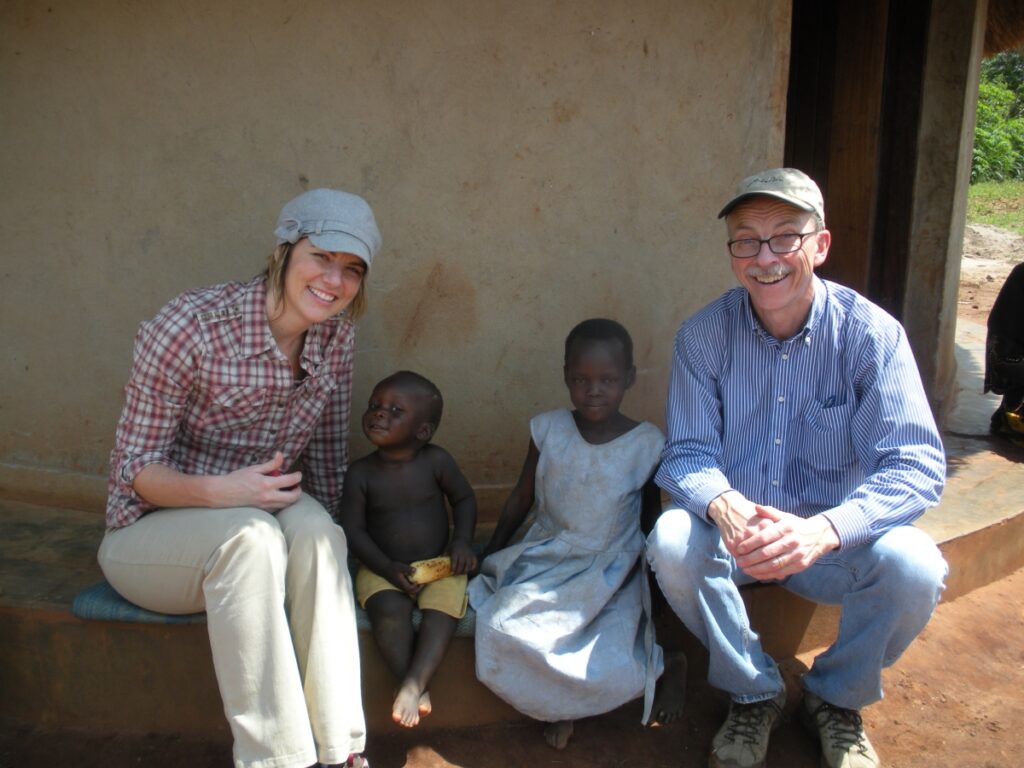
Has there been a most memorable moment over the years with your work? If there have been several, what are one or two that stick out the most?
Mike: There are so many…
- After Brandy, Cathy and I had agreed to form a nonprofit, we took vision casting trips to determine how Field of Hope could potentially be a blessing to others. Armed with information and a passion to serve and realizing we could not fund all our efforts on our own, we set up a dinner meeting at Johnny’s Steakhouse in Moline, IL. We invited friends and associates and put on a presentation of our findings. I can remember being incredibly nervous about asking others to join us in the adventure. To my everlasting amazement, an unbelievable number of people made donations to Field of Hope. They really provided the tailwind to get us going.
- One of the more memorable moments happened early in the ministry. We were busy pursuing our tractor and irrigation strategy when I was confronted by Carol Higgins of Otino Waa Children’s Village. Carol knew I worked for John Deere, so she assumed I knew agriculture very well. (Carol did not realize I had spent nearly my entire career with the Construction & Forestry Division of Deere and knew very little about agriculture.) She said that Otino Waa (an orphan care center with 350 kids) needed to have a high school agriculture class – and I was the person to teach it. Thus began our work educating young people about agriculture and demonstrating drip irrigation.
- Another moment that profoundly affected Field of Hope was when we were beginning to train smallholder farmers. We desperately needed to have curriculum written and had no idea where to have that done. A friend of Field of Hope told us about this incredible agricultural training development company called Vivayic. We called Seth Derner of Vivayic to ask if he could help. We fully expected to get bounced off the call, but to our amazement, Seth and Doug Kueker agreed to partner with Field of Hope in writing curriculum. Since that time, Vivayic and all their personnel have become loving associates and friends. We could not do what we do without the Vivayic family.
- Several years ago, Steve Swigert, a good friend and now Board Member of Field of Hope, asked if we could accept interns from the Oklahoma State University “Masters in International Agriculture Program” for short-term assignments. We agreed, and since that time the short-term assignments have changed to full-term internships. The interns we have received through the MIAP program have been some of the most loving, kind, and humble people I have encountered. To a person, they have assisted Field of Hope with their sacrifices and love for the people we serve. They willingly work in the midst of challenging living conditions, bad roads and transportation – and a bit of homesickness – and never complain. The internship side of Field of Hope is continuing to grow, and I could not be happier about it.
Cathy:
There are so many landmark moments!
- Seeing Brandy on one of the brand-new John Deere tractors.
- Navigating to https://www.fieldofhope.org to view our very first website.
- Bringing the VOMAP Project Coordinator Agnes Obote (with her toddler daughter Jesiah) to the QuadCities to join Brandy in several speaking engagements – and watching them experience flight, elevators and escalators, tractors & combines, and Willow Creek Church in Chicago.
- Mike starting each class with the Otino Waa students with singing and clapping, doing lab experiments, and developing their student gardens.
- Hiring our first intern Alexa to be our Program Director. I could go on and on…
What challenges surprised you over the last eight years? Were there certain situations you didn’t expect to occur?
Mike:
Our failures early in our ministry surprised me. Naively, I thought that if we tried to make a difference in the world by improving agricultural practices, God would provide smooth sailing for us and clear the path. That did not happen. I look back on those days and realize we did not always seek God’s will about Field of Hope plans and projects; we pretty much had our minds made up about what we would do. I look back on those days and realize how important it is to go through the crucible, not only in our lives, but also with regard to Field of Hope. Since then, we have tried hard to LISTEN to God and not put words in His mouth. We have learned that He will speak and direct and give guidance and raise people up in His time, not ours.
Cathy:
We knew circumstances in Uganda would be challenging. Joseph Kony and the LRA had done terrible things to the people in Northern Uganda; there was widespread poverty and disease. We had heard that for every two steps forward, there was generally one step back, often more. What surprised me the most was – and is – the attitude of the Ugandan people. They are filled to overflowing with joy, gratitude, and warmth, and their deep and unwavering spiritual foundation continually inspires us. So instead of letting frustration rule, we learned it was important to stay positive, focused, and persistent, and to praise God.
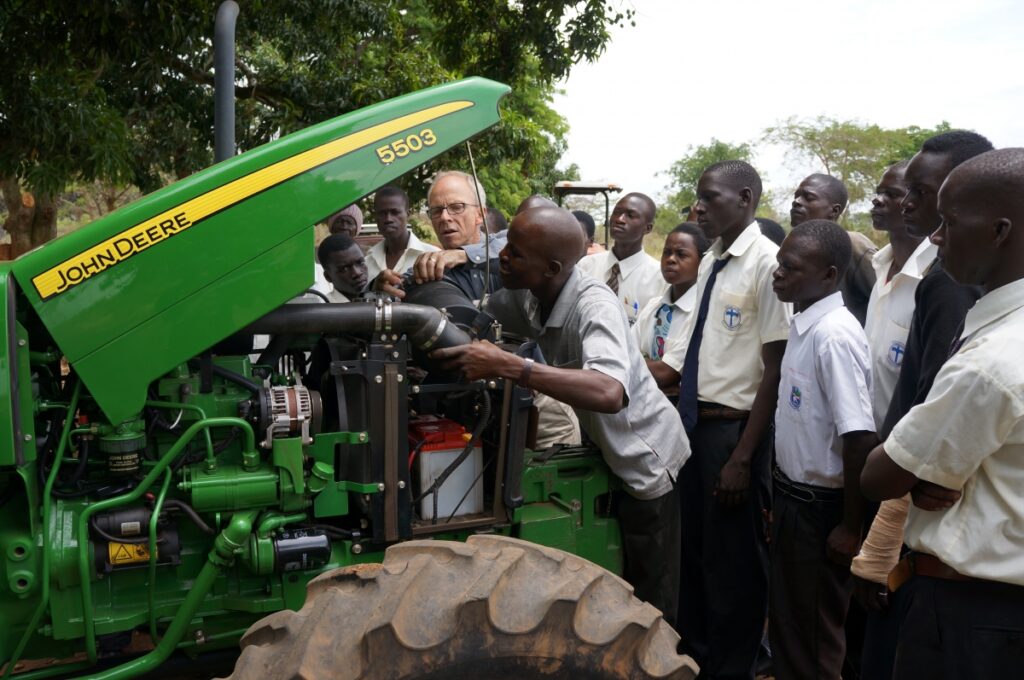
What does it take to keep an organization like this running for almost a decade?
Mike:
Passionate, loving people. From our Ugandan trainers, to our Ugandan partners, our dedicated Field of Hope board members, the terrific, enthusiastic interns, and our wonderful, passionate, caring volunteers and donors, we could not do what we do without them. God was instrumental in bringing every one of these people into our Field of Hope family. Cathy has also been crucial in keeping us on track and being diligent regarding our “back office”. She is tireless in her devotion to Field of Hope and the inner workings and those things that are less fun than front line work.
Cathy:
We have discovered that each person involved with Field of Hope brings special talents and gifts that are crucial to the care and feeding of this nonprofit. Brandy had the vision and the passion to set things in motion. She is an engaging speaker and a wonderful relationship builder, and her excitement about the people and the programs has always been contagious, motivating people to partner with us. Mike’s experience with John Deere prepared him to be an outstanding executive director. He thrives on “doing the doing”. He is able to connect with people of all ages, and his enthusiasm and sense of fun also inspire and build relationships. He loves teaching and helping people. I enjoy the behind-the-scenes role of office director, managing information, planning and proofreading, communicating with donors, taking care of other details that some might find tedious. I love seeing an idea become a reality, marvel when I observe how God connects us with the very person needed to solve a problem. I thrive on watching how our Ugandan team and interns are changing the world – at least in the part of the world we are privileged to serve. As we step up our involvement in India, I am eager to see what new stories will be written.
To what do you accredit the success of FOH?
Mike:
First and Foremost, it has been God’s favor that helped us fail quickly and get our paths reoriented. It was God’s favor that brought us partners at just the right time to help us expand our work. It was God’s favor that brought us Agnes Obote and the right loving trainers in Uganda to take us to the next level in reaching women farmers for critical training areas. It is God’s favor that brings new partners and initiatives almost daily for us to consider as we move forward. As I mentioned, our early plans were not the correct path. God got us reoriented pretty quickly in the way forward.
Cathy:
Answered prayers. We frequently had to get out of the way, pray about situations, and wait for guidance. We are all amazed at the “divine intersections” that have occurred, when we would meet someone with the expertise to help us with a dilemma. All our Board members fall into that category. Each one has brought something essential to this work: wonderful attitude, knowledge, skills and talents, experience.
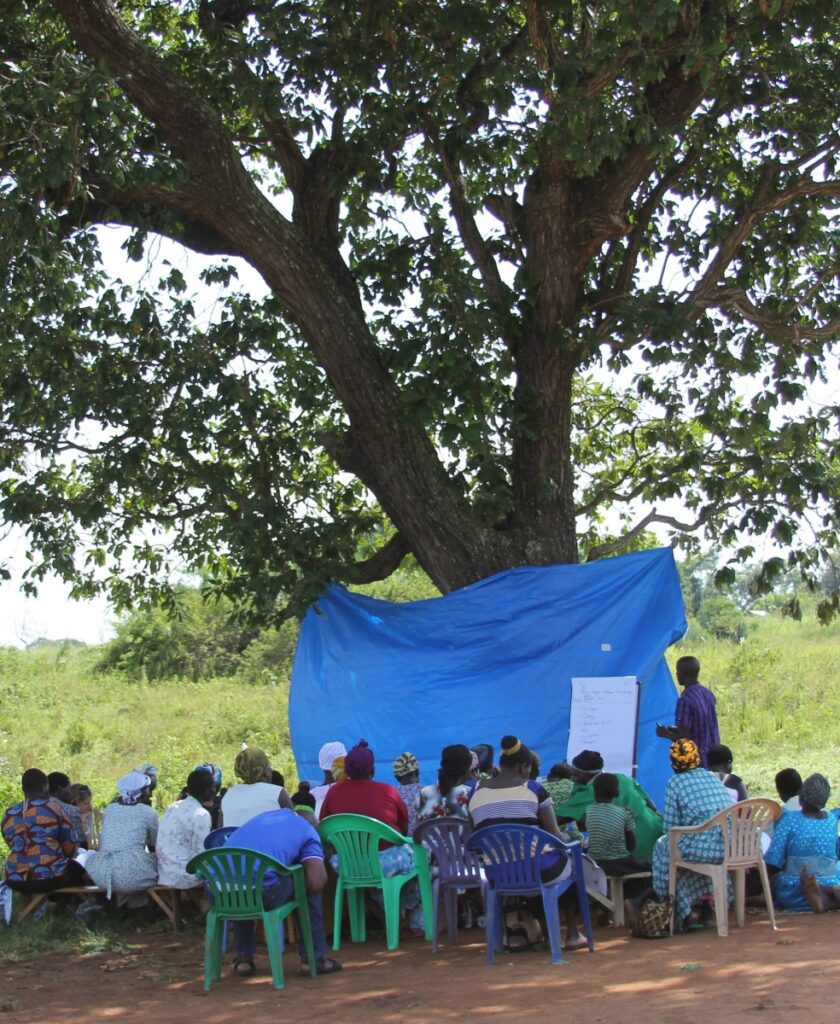
If you each could pick one word to describe the last eight years, what would that word be?
Mike:
FAVOR!
Cathy:
RELATIONSHIPS!
